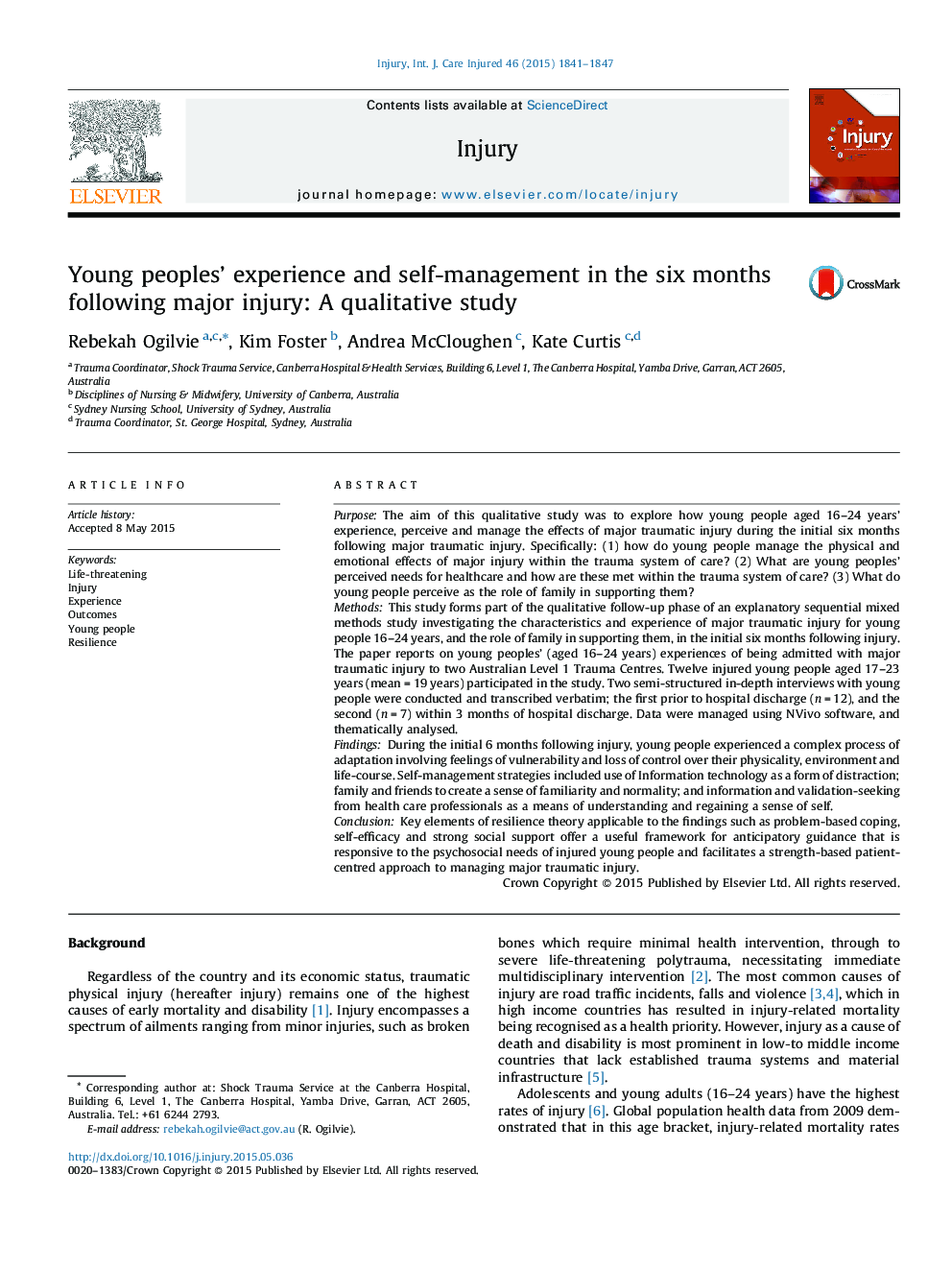| کد مقاله | کد نشریه | سال انتشار | مقاله انگلیسی | نسخه تمام متن |
|---|---|---|---|---|
| 3239132 | 1205984 | 2015 | 7 صفحه PDF | دانلود رایگان |
PurposeThe aim of this qualitative study was to explore how young people aged 16–24 years’ experience, perceive and manage the effects of major traumatic injury during the initial six months following major traumatic injury. Specifically: (1) how do young people manage the physical and emotional effects of major injury within the trauma system of care? (2) What are young peoples’ perceived needs for healthcare and how are these met within the trauma system of care? (3) What do young people perceive as the role of family in supporting them?MethodsThis study forms part of the qualitative follow-up phase of an explanatory sequential mixed methods study investigating the characteristics and experience of major traumatic injury for young people 16–24 years, and the role of family in supporting them, in the initial six months following injury. The paper reports on young peoples’ (aged 16–24 years) experiences of being admitted with major traumatic injury to two Australian Level 1 Trauma Centres. Twelve injured young people aged 17–23 years (mean = 19 years) participated in the study. Two semi-structured in-depth interviews with young people were conducted and transcribed verbatim; the first prior to hospital discharge (n = 12), and the second (n = 7) within 3 months of hospital discharge. Data were managed using NVivo software, and thematically analysed.FindingsDuring the initial 6 months following injury, young people experienced a complex process of adaptation involving feelings of vulnerability and loss of control over their physicality, environment and life-course. Self-management strategies included use of Information technology as a form of distraction; family and friends to create a sense of familiarity and normality; and information and validation-seeking from health care professionals as a means of understanding and regaining a sense of self.ConclusionKey elements of resilience theory applicable to the findings such as problem-based coping, self-efficacy and strong social support offer a useful framework for anticipatory guidance that is responsive to the psychosocial needs of injured young people and facilitates a strength-based patient-centred approach to managing major traumatic injury.
Journal: Injury - Volume 46, Issue 9, September 2015, Pages 1841–1847
